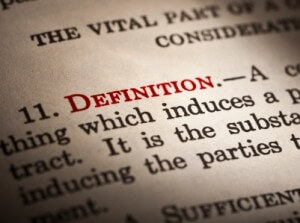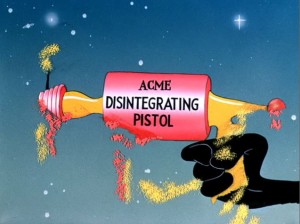Visual Dictionary: Torpid
Welcome to Visual Dictionary, a series of posts about words that are better expressed in pictures.
 Feeling torpid?
Feeling torpid?
If you are lacking energy, such as after a big meal on a hot day, you could refer to yourself as torpid, listless, lethargic, or enervated.
If you are lazy all of the time, you could refer to yourself as indolent, slothful, or shiftless.
Choose your own answer to this Antonyms problem, then click “more.”
TORPID:
A. intractable
B. peppery
C. ineffable
D. indefatigable
E. intrepid
Three-Letter Words: Ilk
 Some of the most perplexing words on the GRE are diminutive. Who doesn’t see PAN : REVIEW and metaphorically scratch his or her head, or wonder what, exactly, a nib or a gin is on its own? Welcome to Three-Letter Words. A few of them might make you want to deploy some four-letter words.
Some of the most perplexing words on the GRE are diminutive. Who doesn’t see PAN : REVIEW and metaphorically scratch his or her head, or wonder what, exactly, a nib or a gin is on its own? Welcome to Three-Letter Words. A few of them might make you want to deploy some four-letter words.
Ilk (rhymes with “milk”) means a family, class, or kind. Don’t confuse it with elk.
You and your ilk are not welcome at the Soho Club. Get out and take your smelly raccoons with you!
Elk and their ilk reside largely in North America and feed on grasses, leaves, and bark.
Interestingly, ilk comes to us from Scotland, where “of that ilk” meant “from the same place as one’s last name.” As Dictionary.com tells it, Ross of that ilk means Ross from the town of Ross.
Brand Name Vocab: Dysport
Dysport is a brand of botulism toxin that can be injected into the face to relax wrinkles; in other words, it’s a competitor to Botox. Just as “Botox” is a contraction of “botulism toxin,” the “dys” in “Dysport” seems to be saying something bad — dysfunction, dystopia, etc.

However, the name “Dysport” also has a positive connotation, at least for those who know the word disport, “to divert or amuse oneself.” As in, The children happily disported on the playground all afternoon.
You know how I love to divert or amuse myself? Needles in the face! Positively needles in the face. The disportment never stops!
(p.s. I was being facetious).
Vocabulary in “The Princess Bride”
The following is the famous “Battle of Wits” scene from the 1987 comedy The Princess Bride:
//www.youtube.com/watch?v=lA-AEuXn1eg&hl=en_US
Early on in the scene, the Man in Black says, “Well, if there can be no arrangement, then we are at an impasse.” An impasse is a deadlock or a road, such as a cul-de-sac, that has no outlet.
Here is a snippet of the dialogue from the Battle of Wits:
Man in Black: All right. Where is the poison? The battle of wits has begun. It ends when you decide and we both drink, and find out who is right… and who is dead.
Vizzini: But it’s so simple. All I have to do is divine from what I know of you: are you the sort of man who would put the poison into his own goblet or his enemy’s? Now, a clever man would put the poison into his own goblet, because he would know that only a great fool would reach for what he was given. I am not a great fool, so I can clearly not choose the wine in front of you. But you must have known I was not a great fool, you would have counted on it, so I can clearly not choose the wine in front of me.
Man in Black: You’ve made your decision then?
Vizzini: Not remotely. Because iocane comes from Australia, as everyone knows, and Australia is entirely peopled with criminals, and criminals are used to having people not trust them, as you are not trusted by me, so I can clearly not choose the wine in front of you.
Man in Black: Truly, you have a dizzying intellect.
Vizzini is demonstrating sophistry (or sophism), “a subtle, tricky, superficially plausible, but generally fallacious method of reasoning.” (Well, I suppose Vizzini’s errors aren’t so “subtle,” actually).
Sophistry got its name from the Sophists, a group of ancient Greek teachers of philosophy and rhetoric. Sadly, the Sophists’ work comes to us primarily through the writings of their opponents, Plato and Aristotle, which is why sophistry means “deceptive reasoning.”
You probably already know the word fallacy, a logical mistake, but a more unusual word for false reasoning is casuistry.
Like sophistry, casuistry can also mean specious or deceptive reasoning, although its other meaning is “a case-based approach to ethics” — for instance, arguing that stealing could be acceptable if its purpose is to feed one’s starving children. Just as sophistry was given a negative connotation by its opponents, casuistry got its “bad” meaning from those prefer a more principle-based approach to ethics.
The argument, “If you’re hungry, broccoli is better than nothing; nothing is better than a juicy hamburger; therefore, broccoli is better than a juicy hamburger” is pure casuistry. Its apparent syllogistic format obscures the fact that the argument uses the word “nothing” in two very different ways — a common trick of sophists.
Three-Letter Words: Ire
 Some of the most perplexing words on the GRE are diminutive. Who doesn’t see PAN : REVIEW and metaphorically scratch his or her head, or wonder what, exactly, a nib or a gin is on its own? Welcome to Three-Letter Words. A few of them might make you want to deploy some four-letter words.
Some of the most perplexing words on the GRE are diminutive. Who doesn’t see PAN : REVIEW and metaphorically scratch his or her head, or wonder what, exactly, a nib or a gin is on its own? Welcome to Three-Letter Words. A few of them might make you want to deploy some four-letter words.
Ire means “anger or wrath” and comes from the same root as irascible and irate. To raise someone’s ire is to anger that person.
If it’s helpful as a mnemonic, you could remember ire by imagining a very angry man named Ira, or by imagining that everyone in Ireland is angry, although we certainly wouldn’t want to stereotype men named Ira, or the Irish, and certainly not Irish men named Ira.
Reading the above paragraph about ire would likely make an Irishman named Ira quite irate. No one wants to raise the ire of an irascible Irish Ira.
Try a sample Analogies problem:
MOLLIFY : IRE ::
A. socialize : apathy
B. rattle : equanimity
C. antagonize : desire
D. quarantine : happiness
E. silence : bombast
Choose your own answer, then click “more for the solution.
Visual Dictionary: Lackey
Welcome to Visual Dictionary, a series of posts about words that are better expressed in pictures.
 Need your coffee made for you? This guy is a lackey.
Need your coffee made for you? This guy is a lackey.
There are myriad English words for what most of us would call a “brown-noser” or “kiss-up” — that is, a “servile flatterer.” (A thesaurus entry gave some more colorful slang terms: apple-polisher, bootlicker, teacher’s pet, yes-man).
Here are some more GRE-likely words for a total brown-nosing bootlicker:
A factotum isn’t necessarily so negative; it simply refers to someone who does menial work (we might call such a person a “gofer”). Same with an underling.
A myrmidon doesn’t necessarily flatter, but he or she does follow orders without question. The original Myrmidons were Achilles’ soldiers in the Trojan War; Zeus made them from ants. Ants!
Some related verbs are:
- Blandish – To coax or influence by flattery. (This word isn’t so negative. You might use blandishments to get your spouse to mow the lawn).
- Fawn – To seek notice or favor through servile behavior or flattery.
- Kowtow – Literally, to touch your forehead to the ground while kneeling. So, you get the metaphor.
- Truckle – To submit or yield in an obsequious way. In other words, to be totally pathetic.
- Slaver – To fawn (or also, to drool).
The boss laughed to the visiting coffee-machine saleswoman. “I don’t make my own coffee, little lady!” he said. “I have my lackeys for that!”
He didn’t realize his temp worker had heard him, but, after three months of being treated like a factotum, she wasn’t willing to truckle to his insults.
For the next few days, she pretended to fawn: “Oh, that new tie makes you look so powerful,” she said. “Your last Powerpoint presentation was really inspiring.”
But really, she was just throwing him off her scent: if his coffee kind of tasted like it had been brewed through a filter that had spent some time in the men’s room urinal, he’d never suspect his loyal myrmidon.
“That’s what he gets for expecting me to be his kowtowing toady,” she thought. “What do I care? Now that I have such a prodigious lexicon, I’ll be off to grad school in no time.”
Vocab at the Movies: Vertigo
 Today’s film selection is a classic: Alfred Hitchcock’s Vertigo.
Today’s film selection is a classic: Alfred Hitchcock’s Vertigo.
Despite being a popular name for nightclubs, vertigo is a horrible medical condition characterized by a feeling of spinning (a feeling so violent it can often lead to vomiting and incapacitation). Thus: a terrible name for a nightclub, but a pretty good name for a horror movie.
The more versatile word vertiginous can be used to refer to anything liable to cause vertigo (either literally or metaphorically). For instance:
The fiftieth-floor apartment was a great deal, but she couldn’t take the vertiginous heights.
Successful traders are those who can control their emotions even in a vertiginous financial environment.
On a somewhat related note, the word vortical (not a typo!) means “relating to a vortex.”
Brand Name Vocab: Acme and Zenith
As a general rule, if a GRE word reminds you of a company name, you can infer that that word at least means something good. Companies rarely name themselves Odium, Iniquity, or Fetidness.
If you’ve ever seen a Looney Tunes cartoon, you’ve probably seen the fictional Acme Corporation’s products. Acme makes “Earthquake Pills,” “Dehydrated Boulders,” and the “Iron Carrot (Fool Your Friends!)” Many real companies are also named Acme — if you can still find a Yellow Pages, open it to the locksmiths or contractors, and you’re likely to find plenty of local businesses using the name. It’s a good one, because it comes very near the beginning of the alphabet, and it means “highest point, summit, peak.”
 The Looney Tunes are owned by Warner Brothers and do not endorse this blog.
The Looney Tunes are owned by Warner Brothers and do not endorse this blog.
Zenith was a popular television brand in the 1980s, and still sells consumer electronics today. Here’s an old-school ad from the company that developed the modern remote control:
A zenith is a high point or culmination, or, literally, “the point on the celestial sphere vertically above a given position or observer.”
In sum: an apex is usually the top of something like a mountain, and a zenith is a high point in the sky, but they can both be used metaphorically to refer to the peak or top of anything. For instance, He’s at the acme of his career, or Our relationship reached its zenith during our Hawaiian vacation; it was all downhill from there.
Of course, the opposite of the zenith is the nadir. Other good words for being at the top include apex, summit, pinnacle, and apogee.
Spells in Harry Potter: Knee-Reversal Hex!
There really is a “knee-reversal hex” in Harry Potter; it causes the victim’s knees to appear on the opposite side of his or her legs. Sadly, knee-reversal is mentioned rarely, if ever, on the GRE.
 The Confundo spell confuses the victim, causing him to become confounded.
The Confundo spell confuses the victim, causing him to become confounded.
The spells levicorpus, liberacorpus, and mobilicorpus have to do with lifting, freeing, and moving bodies, respectively. From the same root, we get corpse, incorporate, corporeal, corporal (as in corporal punishment), corpulent, corps (as in Marine Corps), and esprit de corps.
Oppugno calls up an object and causes it to attack. It is related to oppugn, impugn, pugilist, and pugnacious (all fighting words, as pugnus was Latin for fist).
The one-word spells Impervius, Sonorus, Stupefy, and Enervate are basically GRE vocab words on their own (or, in some cases, misspellings of GRE words).
-
The Impervius spell allows one to repel (that is, become impervious to) outside forces; in Prisoner of Azkaban, Hermione uses the spell on Harry’s glasses during a Quidditch match to allow him to see in the rain.
The Sonorus spell makes the speaker louder; sonorous adds the idea of deep, pleasing, resonant sound.
Stupefy (in both the spell and the word) means to confuse, stun, overwhelm.
However, J. K. Rowling uses the spell Enervate to bring a person back to consciousness. Did the erudite Rowling finally get one wrong? It is a common misconception that enervate has something to do with giving energy — actually, it is the opposite! To enervate is to sap of energy, to weaken.
Of course, not all of the Harry Potter spells are fancy-shmancy Latin: to knock an object backwards, you use the spell Flipendo! That’s almost as silly as knee reversal.
Visual Dictionary: Buttress
Welcome to Visual Dictionary, a series of posts about words that are better expressed in pictures.

This is a buttress. A buttress is a support built against a wall to reinforce it.
Buttress can also be used metaphorically, as a noun or a verb.
To score highly on the GRE essays, you should buttress your arguments with relevant and specific examples.
She never wore her contact lenses; she felt that her image as an intellectual requried the buttress of a sharp pair of glasses.
Before approaching the Princess of Monaco with his famous line, “Did someone leave the oven door open or did your face start a heat wave?”, he buttressed his courage with a gin and tonic.
